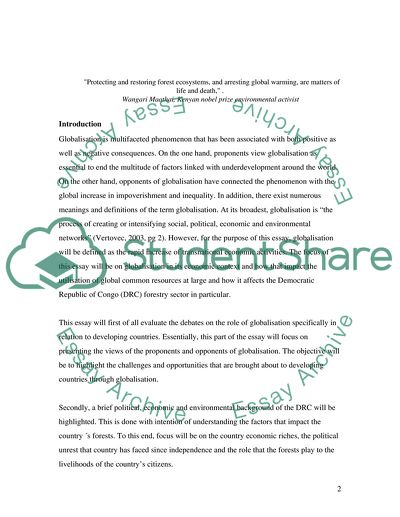Cite this document
(The Effects of Globalisation on the Use of Common Resources - The Coursework, n.d.)
The Effects of Globalisation on the Use of Common Resources - The Coursework. Retrieved from https://studentshare.org/environmental-studies/1731813-the-effects-of-globalisation-on-the-use-of-commons-resources-the-case-of-the-democratic-republic-of-congos-forsests
The Effects of Globalisation on the Use of Common Resources - The Coursework. Retrieved from https://studentshare.org/environmental-studies/1731813-the-effects-of-globalisation-on-the-use-of-commons-resources-the-case-of-the-democratic-republic-of-congos-forsests
(The Effects of Globalisation on the Use of Common Resources - The Coursework)
The Effects of Globalisation on the Use of Common Resources - The Coursework. https://studentshare.org/environmental-studies/1731813-the-effects-of-globalisation-on-the-use-of-commons-resources-the-case-of-the-democratic-republic-of-congos-forsests.
The Effects of Globalisation on the Use of Common Resources - The Coursework. https://studentshare.org/environmental-studies/1731813-the-effects-of-globalisation-on-the-use-of-commons-resources-the-case-of-the-democratic-republic-of-congos-forsests.
“The Effects of Globalisation on the Use of Common Resources - The Coursework”, n.d. https://studentshare.org/environmental-studies/1731813-the-effects-of-globalisation-on-the-use-of-commons-resources-the-case-of-the-democratic-republic-of-congos-forsests.


